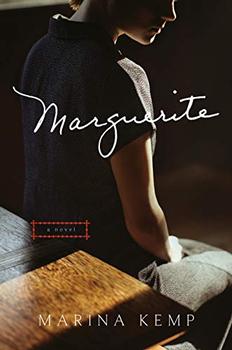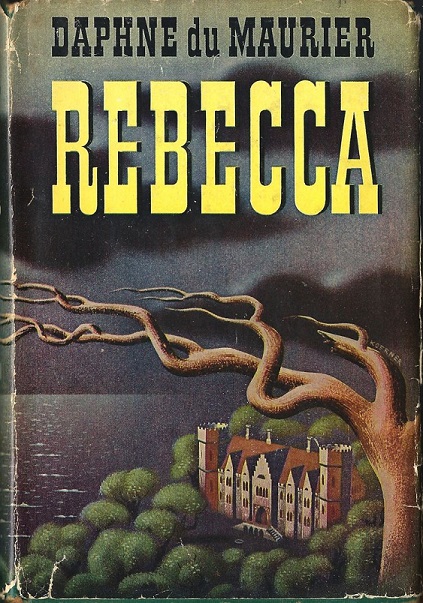Summary | Excerpt | Reviews | Beyond the Book | Read-Alikes | Genres & Themes | Author Bio

 Book Reviewed by:
Book Reviewed by:
Callum McLaughlin
Buy This Book
This article relates to Marguerite
 Marina Kemp's Marguerite operates on several thematic levels; not least as an homage to classics of gothic literature. Like Daphne du Maurier's Rebecca, Charlotte Brontë's Jane Eyre, and Henry James's The Turn of the Screw before it, the novel opens with a young woman arriving at a large, secluded country house, before documenting her increasingly futile attempts to break free from the burden of the past and make said house her home.
Marina Kemp's Marguerite operates on several thematic levels; not least as an homage to classics of gothic literature. Like Daphne du Maurier's Rebecca, Charlotte Brontë's Jane Eyre, and Henry James's The Turn of the Screw before it, the novel opens with a young woman arriving at a large, secluded country house, before documenting her increasingly futile attempts to break free from the burden of the past and make said house her home.
Kemp is not the first contemporary author to draw heavily on this motif. Susan Fletcher's House of Glass, Laura Purcell's The Silent Companions and Alice Thompson's The Book Collector are just a few comparative examples. But what is it about this setup that continues to attract and enthrall authors and readers alike? The answer lies in the quietly sordid thrill that comes from witnessing the corruption of our long-held belief that home is an unwaveringly safe space.
This tainting of everything that home should represent to the protagonist (and the reader) is achieved through a succession of dichotomies; authors contrasting the qualities that epitomize the "dream home" with a darker, more sinister reality. The buildings' outward beauty is often slowly decaying, their best years long behind them. They are at once impressively large and unnervingly claustrophobic. They are at the heart of a close-knit community, but often sit geographically and socially apart from it. The renown they hold amongst respective locals usually stems not from admiration and envy, but whispers of scandal. The hostile welcomes from existing homeowners — strangers who will now be privy to our main characters' most intimate moments — do little to put any tensions at ease. With all that considered, the inclusion of a gothic manor home has become literary shorthand for mounting tension and the promise of future danger for our protagonist(s), be it physical or emotional.
Marguerite's titular heroine, like so many others before her, will attempt to begin afresh and set down roots in her new home, but can you ever feel settled when you're still running from the past? Can a house ever embrace the presence of someone new when it continues to be haunted by the ghosts of those who came before? Whether speaking of literal or metaphorical hauntings (as in this case), it is these crucial questions that so often loom over a gothic heroine and her search for a place in the world. In a fascinating example of thematic mirroring, the heroines of a gothic novel, like the houses themselves, often must be expunged of internalized guilt if they are to ever have a chance at happiness.
Fiction is a means of escapism, but it has also long been used as a means of pushing ourselves beyond our comfort zones; forcing ourselves to face subconscious fears from the safety of the page. It is little surprise therefore that we continue to see stories that incorporate the symbolically striking gothic manor house and all it has come to stand for — the comfort of the familiar and the thrill of the unknown. Long may it continue to delight and unnerve us in equal measure.
Rebecca book cover, courtesy of Frank B. Geller Memorial Library
Filed under Books and Authors
![]() This article relates to Marguerite.
It first ran in the April 22, 2020
issue of BookBrowse Recommends.
This article relates to Marguerite.
It first ran in the April 22, 2020
issue of BookBrowse Recommends.




Heaven has no rage like love to hatred turned, Nor hell a fury like a woman scorned.
Click Here to find out who said this, as well as discovering other famous literary quotes!
Your guide toexceptional books
BookBrowse seeks out and recommends the best in contemporary fiction and nonfiction—books that not only engage and entertain but also deepen our understanding of ourselves and the world around us.